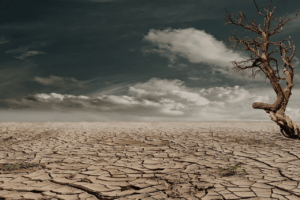1 Kings 19: 9a, 11-13a (RM) or 9-18 (RCL); Psalm 85; Romans 9: 1-5 (RM) or Romans 10: 5-15 (RCL); Matthew 14: 22-33.
Suddenly becoming aware of your vulnerability is scary. …no, terrifying.
The story elements in today’s Gospel work together to build up a realistic drama of daredevil behavior followed almost immediately by a paralyzing scream for help. Yes, to this day severe storms can come up quickly on the Sea of Galilee. Yes, the friends of Jesus were probably exhausted by three o’clock in the morning, likely to hallucinate ghosts… and to exercise really, really bad judgement.
A friend of mine who owns a pleasure boat put it this way: when you’re still at port and contemplating the choppy waters, you think, “Is my boat strong enough?” When you’re actually out in the storm, your thought is, “Oh Jesus save me!”
But the drama of this story is wrapped around a parable of epiphany, a divine appearance, an unexpected hero turning up against all reason to stretch out a saving hand. Jesus speaks up to reassure his friends with ancient familiar words, “It is I,” ego eimi in Greek, which would resonate immediately as the name revealed by God to Moses in the burning bush: “I am who am.” The closing line, “Truly you are the Son of God” puts emphasis on the point of this story as a revelation of the true identity of Jesus.
As is often the case, to make a seemingly fantastical Bible story make sense, we need to re-cast its shape by studying the story through the lens of the period in which it was written down, and the early Christians for whom it was written. When we do that, the narrative takes second place to the structure of the story as a parable about the conditions faced by Matthew’s second- and third-generation Christians who were regularly forced to pay a high price for their new faith. When Jesus required the disciples to get in the boat and go ahead to the opposite side, he was sending them into Gentile territory. When their boat was “tossed about by the waves, for the wind was against it” this represents the opposition and even persecution that many early Christians were forced to undergo. When Jesus walks toward them on the sea, the story element here runs parallel with Canaanite myths and Hebrew Bible stories that show God as the master of the storm, coming with power on rainclouds and tempests. When Peter begins to sink, he calls instinctively for help to the figure of Jesus, who does indeed save him, as did the God of the Psalms. The message for frightened Christians would have been on the necessity of faith, and reliance on the saving power of the now-risen Christ.
In our own time, vulnerability has become almost a way of life. Whether it comes from the daily reminder that certain symptoms might indicate a potentially fatal disease, or when we try to protect even more vulnerable family members, or even when we look at the larger horizon and see dangerously authoritarian rulers whom no one seems able to stop, we do not need to be reminded how fragile are the conditions of our lives, and the susceptibility of our bodies to disease.
To say this is a challenge to our faith may be an understatement. And yet with the limited tools available to us, we can support each other in faith and speak a reassuring friendly word or a message of hope. While acknowledging that race, economic means and overall health play a role in the relative vulnerability of different persons, we can nonetheless work toward compassion and solidarity by reminding ourselves that we are, inevitably, all in this together. And we are not alone in what may seem like an impersonal cosmos in which one is always in danger of drowning, so to speak. We won’t drown.
© Susan K. Roll
This Reflection is slightly revised from the Reflection written and sent for August 9, 2020.
Susan Roll retired from the Faculty of Theology at Saint Paul University, Ottawa, in 2018, where she served as Director of the Sophia Research Centre. Her research and publications are centred in the fields of liturgy, sacraments, and feminist theology. She holds a Ph.D. from the Catholic University of Leuven (Louvain), Belgium, and has been involved with international academic societies in liturgy and theology, as well as university chaplaincy, Indigenous ministry and church reform projects.




